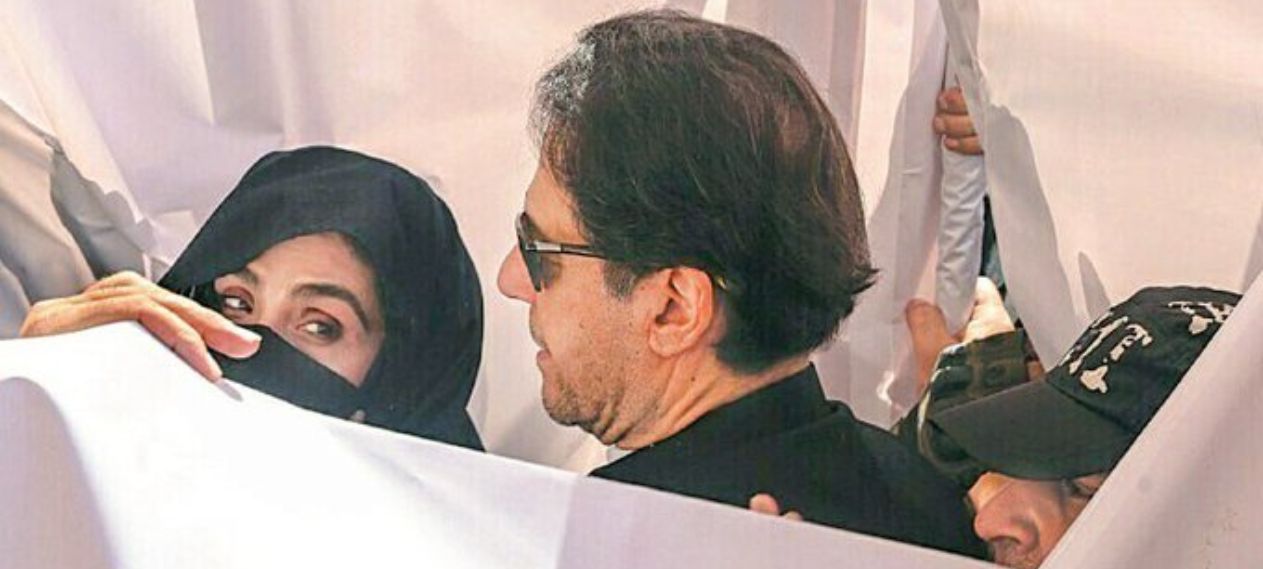In a significant development, an accountability court on Wednesday delivered a verdict in the high-profile Toshakhana case, sentencing former Prime Minister Imran Khan and his wife Bushra Bibi to 14 years in prison. The court also imposed a hefty fine of Rs1.573 billion on the couple, marking a major legal setback for the political heavyweight.
The judgment, delivered by Accountability Judge Mohammad Bashir, also included a disqualification of 10 years for Imran Khan, a prominent figure in Pakistani politics. The proceedings witnessed a dramatic turn when Khan, during the hearing, expressed his intention to submit a statement under Section 342. However, he opted to defer the submission until the arrival of his legal representatives and subsequently left the courtroom.
The judge, seeking Khan’s presence, directed jail authorities to ensure his appearance, but officials reported Khan’s reluctance to comply with the court’s directive. This move added a layer of tension to the already intense legal battle unfolding within the walls of the courtroom.
What is Toshakhana Case?
Toshakhana case has garnered significant public attention, revolves around accusations of Imran Khan benefiting from valuable gifts received during his tenure as Prime Minister from 2018 to 2022. These gifts, allegedly obtained from Toshakhana at reduced prices, were purportedly sold for a substantial amount totaling $635,000.
Among the notable items received by Khan was a valuable wristwatch featuring a model of the Holy Kaaba, with an estimated international market value exceeding 600 million.
The legal saga traces back to October 21, 2022, when the Election Commission of Pakistan found Imran Khan guilty of submitting false statements regarding his assets and gifts under Article 63(1) of the Constitution in connection to the Toshakhana case.
Subsequent legal maneuvers led to a trial court’s decision on May 10, 2023, which found Khan guilty of providing incorrect information. However, the Islamabad High Court’s intervention on July 4 resulted in the nullification of the trial court’s verdict, prompting a reevaluation of the case.
On August 5, 2023, the local court handed a three-year prison sentence to Imran Khan in the Toshakhana case. Nevertheless, the Islamabad High Court, in a subsequent ruling on December 21, suspended the sentence while upholding his disqualification from holding public office.
The legal woes for Khan did not end there, as a day prior to the Toshakhana case verdict, a special court established under the Official Secrets Act convicted Imran Khan and his deputy Shah Mahmood Qureshi in the cipher case. Judge Abul Hasnat Zulqarnain delivered a sentence of ten years imprisonment to both political leaders, following their submission of responses to a questionnaire comprising 36 questions.
Also Read: Imran Khan, Shah Mehmood Sentenced 10 Years Jail in Cipher Case
In the courtroom, Imran Khan faced inquiries regarding the whereabouts of the cipher, purportedly containing evidence of a US conspiracy behind the toppling of his government. Khan maintained that he did not possess the cipher, shifting responsibility for the security of the Prime Minister’s House.
The culmination of these legal battles underscores the intricate legal landscape surrounding high-profile political figures in Pakistan and raises questions about the implications for the country’s political future.
As Imran Khan and Bushra Bibi face the repercussions of the court’s verdict, the ramifications reverberate across Pakistan’s political spectrum, shaping the discourse on accountability, transparency, and the rule of law.

